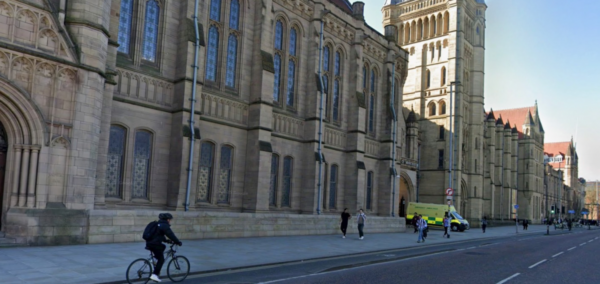
60 per cent of Edi students report they will not study more due to the strikes
So what are students planning on getting up to the whilst the strikes are taking place?
We know that strikes will mean access to lectures, seminars and tutorials will be limited if accessible at all, with majority of classes cancelled over the upcoming strike dates this week. But how does that impact the day-to-day lives of students?

Strikes are often touted as a chance for students to get ahead in their work – less time in class means more time in the library, right? It is easy to assume that students may choose to make up for lost learning time by spending more time doing independent study.
However, not only will students lose vital learning resources such as contact with tutors and professors, and in person classes, 60 per cent of Edinburgh students report they will not be studying more during the strikes. Students may find it impossible to study more, if at all, without the original starting guidance of in-person contact with professors, tutors and course organisers who are striking.
Understandably, with the lack of in person classes, comes a reduction of time spent on campus by students with 68 per cent of students saying they will be accessing onsite university facilities and campus less.
To make up for this however, student expenditure will increase as many students commented stating that they would be spending more money in order to find alternative study spaces such as cafes. Students noted that this was due to an effort not to cross the picket line and a desire to support staff by not accessing university facilities.
Most Read
Already in a difficult financial situation, with the cost of living crisis meaning exorbitant prices and a housing crisis meaning rising rental costs, it seems as if students will be spending more during the strikes. Some students have admitted that they will be spending money socialising with friends in order to have an excuse to leave their house and escape boredom. Other social activities such as clubbing will also see an increase whilst strikes occur. As one student so aptly put it: “no lectures = more pints the night before”.
Expenditure will also increase as one student replied that they will have to pay for tutoring in order to make up for missed lessons in order to achieve a good grade in the module. Others are also financially supporting the strikes by donating to the strike fund.
However, some students reported a decrease in expenditure. Commuting students have acknowledged a substantial reduction in costs because of strikes as they no longer have to commute due to cancelled classes.

Because of the extra flexibility with schedules due to cancelled classes, and a possible financial strain, 42 per cent of students are choosing to pick up extra shifts at their jobs during strikes. Less time in class means students’ work availability has opened up, and many are taking advantage of this opportunity.
Contrastingly, 30 per cent of students stated that they will be travelling abroad during strikes, utilising the time out of class to travel with one student saying: “a hundred thousand ‘days out’ just got booked”. With a percentage of students already expected to travel during Reading Week, no doubt this number has exponentially increased due to strike dates essentially cancelling many classes in February.
Related stories recommended by this writer:
• Edinburgh University ‘reviewing’ how it detects plagiarism due to ChatGPT software
• Over 10,000 Scottish students denied university accommodation each year
• In pictures: Everything we know about the Edinburgh Jenners fire



















